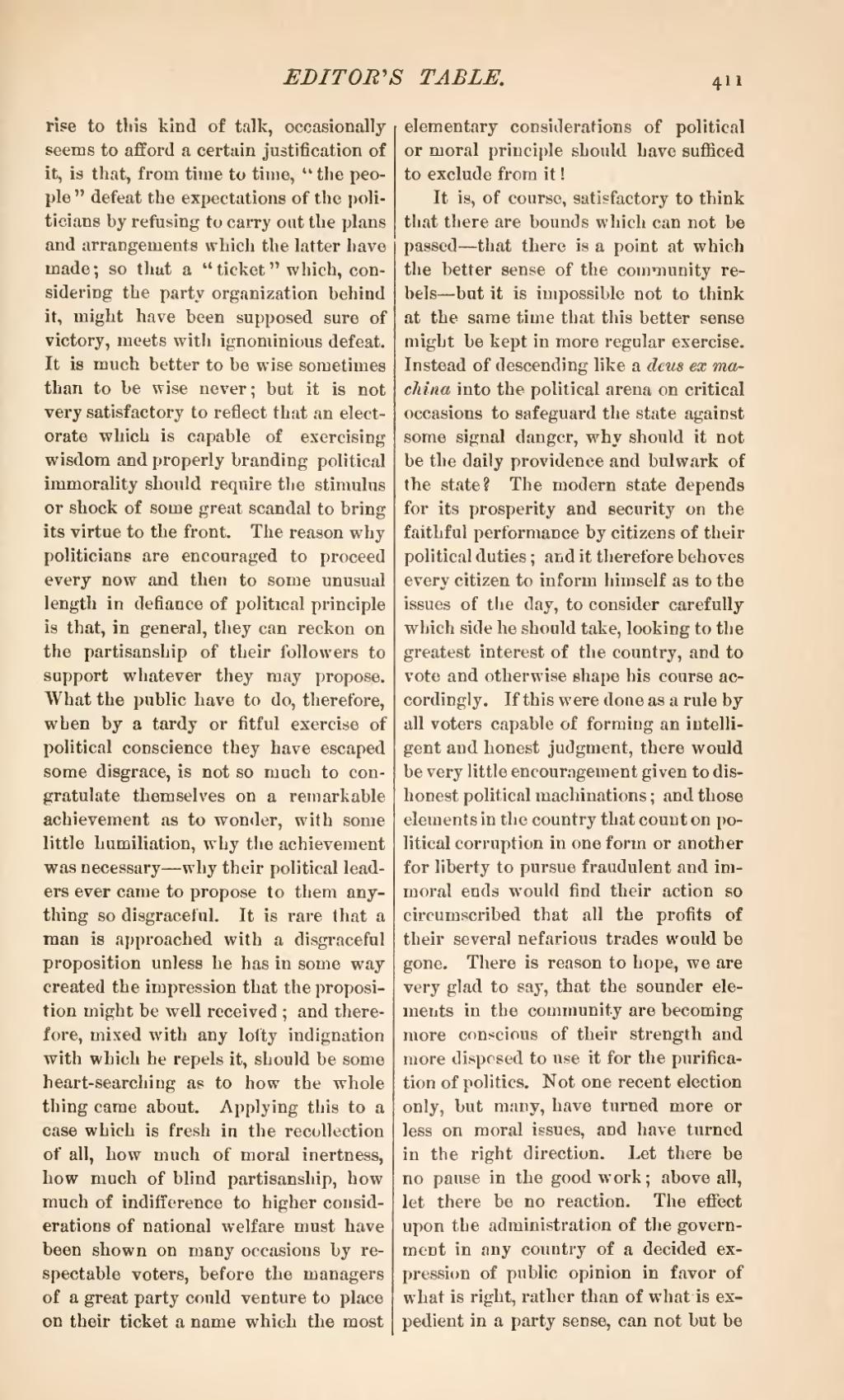rise to this kind of talk, occasionally seems to afford a certain justification of it, is that, from time to time, "the people" defeat the expectations of the politicians by refusing to carry out the plans and arrangements which the latter have made; so that a "ticket" which, considering the party organization behind it, might have been supposed sure of victory, meets with ignominious defeat. It is much better to be wise sometimes than to be wise never; but it is not very satisfactory to reflect that an electorate which is capable of exercising wisdom and properly branding political immorality should require the stimulus or shock of some great scandal to bring its virtue to the front. The reason why politicians are encouraged to proceed every now and then to some unusual length in defiance of political principle is that, in general, they can reckon on the partisanship of their followers to support whatever they may propose. What the public have to do, therefore, when by a tardy or fitful exercise of political conscience they have escaped some disgrace, is not so much to congratulate themselves on a remarkable achievement as to wonder, with some little humiliation, why the achievement was necessary—why their political leaders ever came to propose to them anything so disgraceful. It is rare that a man is approached with a disgraceful proposition unless he has in some way created the impression that the proposition might be well received; and therefore, mixed with any lofty indignation with which he repels it, should be some heart-searching as to how the whole thing came about. Applying this to a case which is fresh in the recollection of all, how much of moral inertness, how much of blind partisanship, how much of indifference to higher considerations of national welfare must have been shown on many occasions by respectable voters, before the managers of a great party could venture to place on their ticket a name which the most elementary considerations of political or moral principle should have sufficed to exclude from it!
It is, of course, satisfactory to think that there are bounds which can not be passed—that there is a point at which the better sense of the community rebels—but it is impossible not to think at the same time that this better sense might be kept in more regular exercise. Instead of descending like a deus ex machina into the political arena on critical occasions to safeguard the state against some signal danger, why should it not be the daily providence and bulwark of the state? The modern state depends for its prosperity and security on the faithful performance by citizens of their political duties; and it therefore behoves every citizen to inform himself as to the issues of the day, to consider carefully which side he should take, looking to the greatest interest of the country, and to vote and otherwise shape his course accordingly. If this were done as a rule by all voters capable of forming an intelligent and honest judgment, there would be very little encouragement given to dishonest political machinations; and those elements in the country that count on political corruption in one form or another for liberty to pursue fraudulent and immoral ends would find their action so circumscribed that all the profits of their several nefarious trades would be gone. There is reason to hope, we are very glad to say, that the sounder elements in the community are becoming more conscious of their strength and more disposed to use it for the purification of politics. Not one recent election only, but many, have turned more or less on moral issues, and have turned in the right direction. Let there be no pause in the good work; above all, let there be no reaction. The effect upon the administration of the government in any country of a decided expression of public opinion in favor of what is right, rather than of what is expedient in a party sense, can not but be
